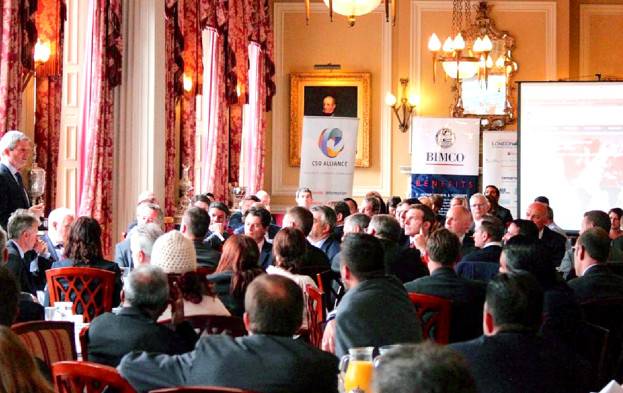Though the maritime sector has seen a decline in Somali piracy in the Indian Ocean and Gulf of Aden, there is no room for complacency regarding the ongoing threat, says EU Naval Force Operation Commander, Major General Martin Smith MBE.
Addressing senior shipping industry representatives at breakfast meeting earlier this week, Smith credited the ‘collective effort’ of shipping companies and dedicated naval forces for the reduction in pirate attacks since 2012.
However, while the opportunity for pirates to get out to sea and attack ships had reduced, the pirates’ intent and capability remains, Smith warned.
“It is clear that we have (together) come a long way since early 2011, when 736 hostages and 32 ships were being held for ransom in anchorages off Somali beaches. However, the recent incidents of Iranian dhows being captured by groups of armed men demonstrate that there are still some who are prepared to go out to sea and take vessels for ransom,” Smith said.
One of the dhows, Siraj, and its crew, is still being held after being captured at sea in March 2015, according to European Union Naval Force.
Smith said the threat from long-range pirate attacks in the near future is reduced thanks to naval patrols and merchant vessels’ self-protection measures, including the use of private armed security teams (PAST), in the Indian Ocean.
“Collectively we have been able to curtail their use of mother ships to attack far from the coast, but I remain convinced that if pirates perceive that we are lowering our guard, they will seize the opportunity and plan an attack on a vulnerable ship,” Smith said. “And if they take one ship, this could reenergize their business model, which you know all too well, could cost the international community and shipping industry dearly.”

















